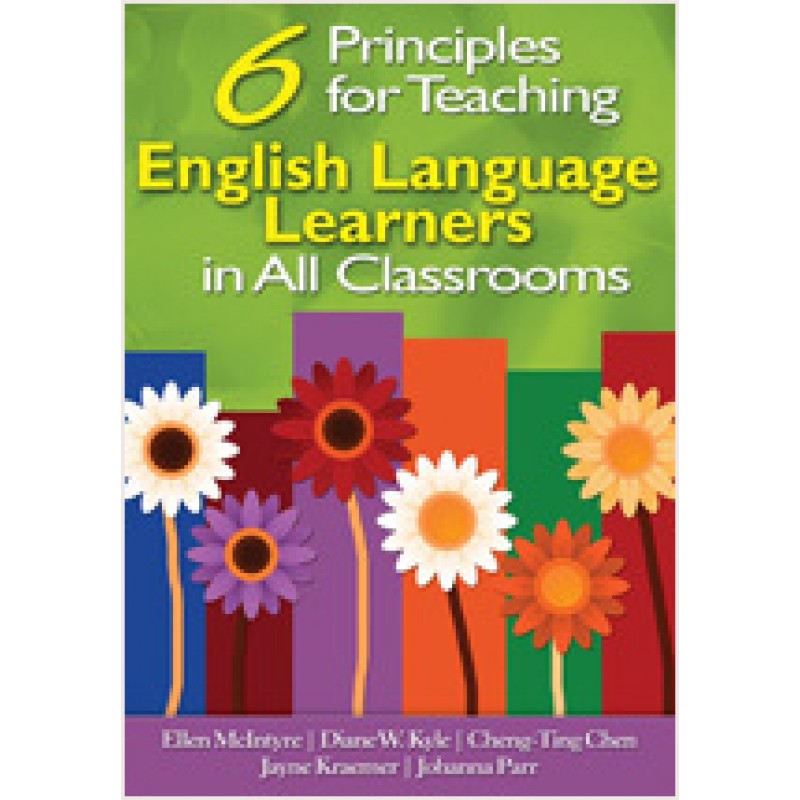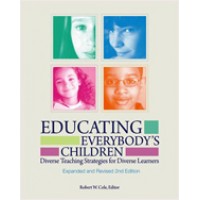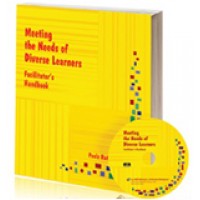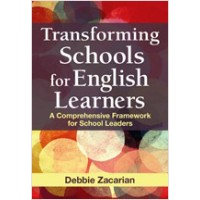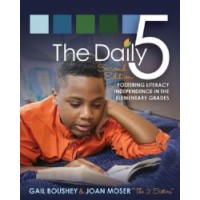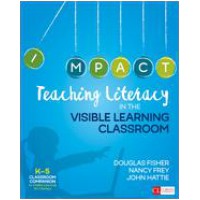Six Principles for Teaching English Language Learners in All Classrooms
| Author(s) | Ellen McIntyre, Diane W. Kyle, Cheng-Ting Chen, Jayne Kraemer, Johanna Parr |
| ISBN10 | 1412958342 |
| ISBN13 | 9781412958349 |
| Format | Paperback |
| Pages | 168 |
| Year Publish | 2008 September |
Synopsis
"A highly accessible and practical resource for applying sociocultural theory to both pedagogy and parent involvement. It begins with theory, but then provides excellent examples of how the principles might be meaningfully applied in real classrooms."
—Robert Rueda, Professor
University of Southern California
Ensure high student achievement in diverse classrooms with this proven instructional model!
This vital resource presents educators with an instructional approach that is flexible and practical enough for mainstream classroom use—yet also academically rigorous and grounded in research on teaching English language learners (ELLs).
Ideal for elementary and middle school teachers as well as ELL specialists, this book offers six key principles to help educators address language development in a regular classroom while supporting ELL students in learning academic content. This field-tested model is based on five standards for pedagogy from the Center for Research on Education, Diversity, and Excellence (CREDE) as well as the authors' sixth principle for family involvement. Focusing on one principle per chapter, this book includes:
- Lessons, tips, and in-depth vignettes from teachers who have been trained in the model
- Advice on working successfully with ELL families
- Guiding questions and self-assessments based on CREDE's indicators for achievement of standards to help teachers monitor their own development
Six Principles for Teaching English Language Learners in All Classrooms will not only assist ELLs, but will ultimately benefit all learners in the inclusive classroom.
About The Authors:
Ellen McIntyre is a literacy professor in the Department of Teaching and Learning at the University of Louisville, where she teaches courses on lit-eracy research and instruction and studies children’s development in light of instructional contexts. She has published extensively, having coau-thored Reaching Out: A K–8 Resource for Connecting Schools and Families, coedited Classroom Diversity: Connecting School Curricula to Students’ Lives, Balanced Instruction: Strategies and Skills in Whole Language, and Creating Nongraded Primary Programs, and published in such journals as Language Arts, Research in the Teaching of English, Journal of Literacy Research, and American Educational Research Journal. Her most recent project, codirected with Diane Kyle, is “Sheltered Instruction and Family Involvement: An Approach to Raising Achievement of LEP Students,”funded by the US Department of Education. She also codirected with Diane Kyle a research project, “Children’s Academic Development in Nongraded Primary Programs,” funded by the Center for Research on Education, Diversity, and Excellence (CREDE) at the University of California at Santa Cruz.
Diane W. Kyle is a professor in the Department of Teaching and Learning at the University of Louisville. She has coauthored Reaching Out: A K–8 Resource for Connecting Schools and Families and Reflective Teaching for Student Empowerment: Elementary Curriculum and Methods, coedited Creating Nongraded Primary Classrooms: Teachers’ Stories and Lessons Learned, and pub-lished in such journals as Language Arts, Peabody Journal of Education, Journal of Education for Students Placed at Risk, Education & Equity, Teaching Children Mathematics, and Elementary School Journal. Her most recent project, co-directed with Ellen McIntyre, is “Sheltered Instruction and Family Involvement: An Approach to Raising Achievement of LEP Students,” funded by the US Department of Education. She also codirected with Ellen McIntyre a research project, “Children’s Academic Development in Nongraded Primary Programs,” funded by the Center for Research on Education, Diversity, and Excellence (CREDE) at the University of California at Santa Cruz.

